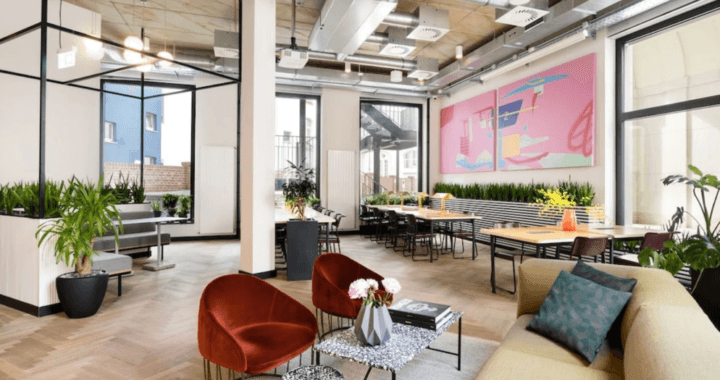Brickell’s skyline tells a story of reinvention. Once dominated by traditional finance, the neighborhood now buzzes with a different energy—crypto startups etching their names into glass facades, blockchain developers brainstorming in sunlit lounges, and venture capitalists debating DAOs over Cuban coffee. This transformation didn’t happen by accident. Miami’s metamorphosis into a blockchain epicenter reflects a calculated dance between visionary policymakers, adaptive real estate strategies, and companies betting big on decentralized futures, without locking themselves into rigid commitments.
The Catalyst: BlockTower Capital’s Bold Move
When BlockTower Capital relocated its entire team from Manhattan to Brickell in June 2021, it wasn’t just a change of address. The institutional crypto investment firm brought its San Francisco-based subsidiary, Gamma Point Capital, and pledged to create high-wage jobs in Miami’s burgeoning tech sector. Mayor Francis Suarez, who famously accepted his salary in Bitcoin, hailed the move as proof that “crypto isn’t a fringe experiment—it’s rewriting finance’s rulebook”. What made BlockTower’s relocation striking wasn’t just its scale but its symbolism: a Wall Street-tested firm choosing Miami’s humid energy over New York’s granite towers.
Blockchain.com’s Wynwood Blueprint
While Brickell attracted headlines, Wynwood quietly became a laboratory for crypto workspace innovation. Blockchain.com’s 22,000-square-foot headquarters in the Cube Wynwd building exemplifies this shift. Designed by Arquitectonica, the space merges industrial grit with subtropical practicality. A 30-foot breezeway channels ocean winds through the lobby, while nine-story breeze block walls—crafted from porous concrete—create natural airflow, cutting AC dependency. “We didn’t want another sterile tech campus,” said CEO Peter Smith. “This building mirrors crypto’s ethos: transparent, adaptive, rooted in community”.
The project’s success lies in its contradictions: a “permanent” office designed for impermanence. Despite signing a 10-year lease, Blockchain.com insisted on modular interiors that can be reconfigured quarterly. Their recruitment strategy echoes this flexibility—70+ Miami-based roles span compliance specialists to NFT curators, with hybrid work policies attracting talent from Caracas to Copenhagen.
The Art of Ephemeral Commitments
Why avoid long-term leases in a boom market? Industry insiders point to three factors:
- Regulatory Whiplash: Florida’s crypto-friendly policies (like Blockchain.com’s 2021 money transmitter license) contrast with federal ambiguity. Firms hedge bets, leasing spaces that can scale down as easily as up.
- Cultural Experimentation: The Lofty Brickell Residences—a condo tower offering NFT art with each unit—showcases Miami’s blend of crypto and creativity. Startups want workspaces that mirror this fluidity, where conference rooms double as NFT galleries.
- Talent Churn: With 1 in 5 Americans holding crypto, per BlockTower’s data, employee loyalties shift with market tides. Flexible offices accommodate teams that might pivot to DAOs or Web3 projects overnight.
Brickell’s Hidden Infrastructure Play
Beyond glossy towers, Miami’s crypto appeal hinges on gritty logistics. When Blockchain.com scouted locations, fiber-optic density mattered more than square footage. “Latency is the enemy,” explained CTO Marwan Alzarouni. “Our traders need millisecond advantages”. Developers responded: Cube Wynwd’s retrofit included redundant power grids and seismic upgrades for server farms, disguised as “artistic exposed wiring”.
Even lunch breaks got a blockchain makeover. The building’s rooftop hosts Kissaki, a sushi bar where meals can be paid in Bitcoin—a feature negotiated into the lease by Blockchain.com’s legal team.
The MatchOffice Advantage in a Shifting Market
Navigating Miami’s crypto real estate requires local savvy. Traditional metrics like price-per-square-foot falter when landlords accept equity stakes in lieu of deposits. MatchOffice’s platform aggregates these unconventional deals, offering:
- Regulatory Radar: Real-time updates on Florida’s crypto legislation impacting lease terms
- Tech Audits: Independent assessments of building infrastructure (e.g., latency tests, backup power)
- Community Access: Introductions to Miami’s blockchain guilds and DAO meetups
“We’ve seen firms reject turnkey offices because the WiFi couldn’t handle NFT minting parties,” said MatchOffice’s Miami lead. “Our vetting process saves clients from costly misfires.”

